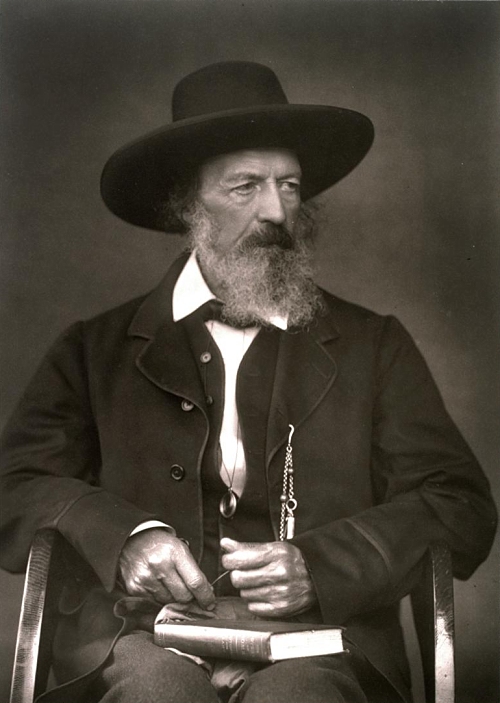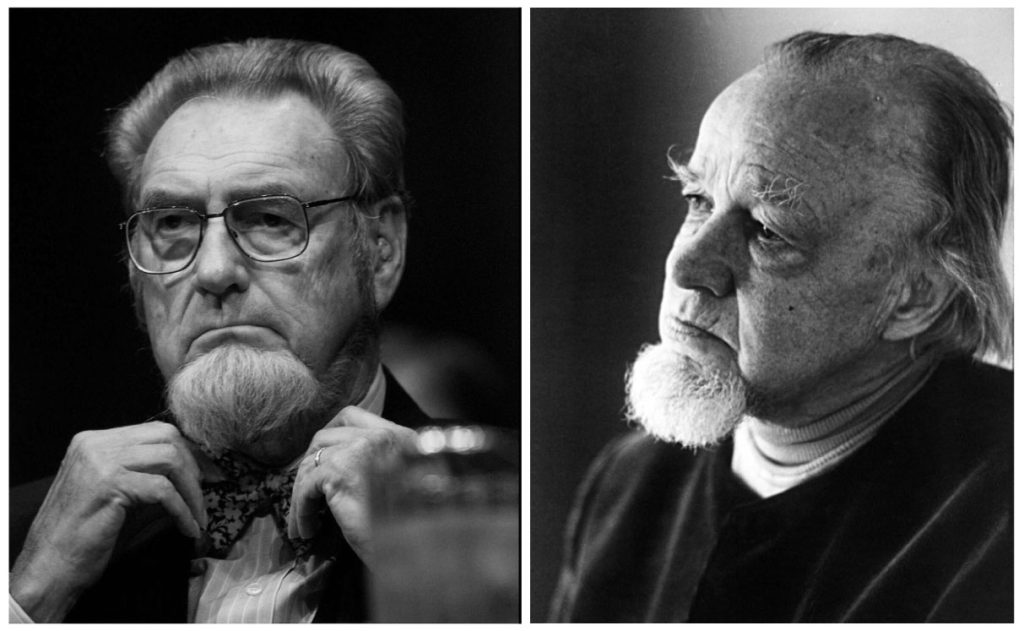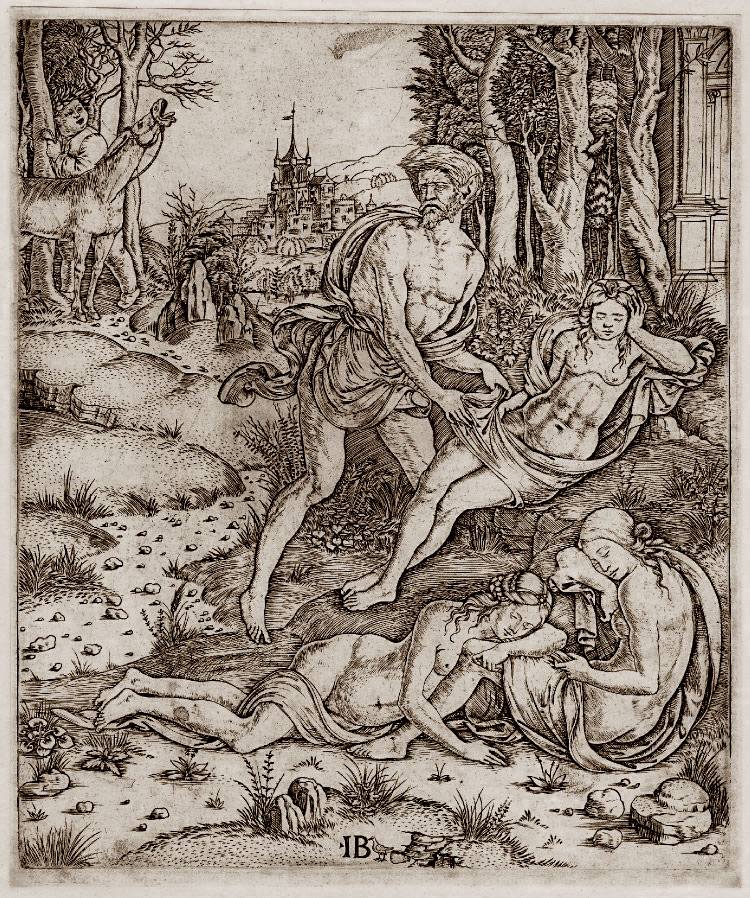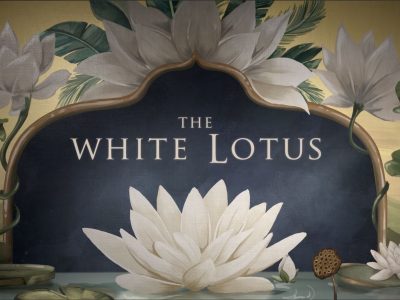The White Lotus
We started watching The White Lotus1 recently. I know, we’re late to the show, but that’s my style. We finished the first season. I think it’s really good and I’ve even been recommending it to folks. When I’m left with an influence, I try to figure out why I connected with it. What first caught my attention was when a character in the series recites verse IV of Lord Alfred Tennyson’s poem The Lotus-Eaters2,3,

Hateful is the dark-blue sky,
Vaulted o’er the dark-blue sea.
Death is the end of life; ah, why
Should life all labour be?
Let us alone. Time driveth onward fast,
And in a little while our lips are dumb.
Let us alone. What is it that will last?
All things are taken from us, and become
Portions and parcels of the dreadful past.
Let us alone. What pleasure can we have
To war with evil? Is there any peace
In ever climbing up the climbing wave?
All things have rest, and ripen toward the grave
In silence; ripen, fall and cease:
Give us long rest or death, dark death, or dreamful ease.
I think it pretty much sums up the entirety of the series in just one verse and the poem explores the same themes of escapism, the passage of time, and the search for meaning in life. Kudos to the art director or whoever included the video of the dark rolling ocean as segue-ways. Tenyson’s poem is a reference to the Lotos-Eaters of Greek mythology who appear in Homer’s Odyssey4 Instead of just being a cautionary tale about the dangers of temptation, it begs the question why leave the island? It’s akin to Tenyson’s most cited quote “Theirs not to reason why, Theirs but to do and die” in The Charge of the Light Brigade but explores the outcome a little further. [ Minor Spoiler Alert ] Season one ends with a character returning to the island and finding meaning in paddling in the ocean and the last verse of Lotus-Eaters ends with ->
Surely, surely, slumber is more sweet than toil, the shore
Than labour in the deep mid-ocean, wind and wave and oar;
O, rest ye, brother mariners, we will not wander more.
I’ve looked for interviews of the series author describing the motivation for writing the series, but I’m pretty much left to speculate. I knew the series would be good because I was mildly obsessed with Enlightened5 which was also written by White6. I skip the detail on Enlightened other than to say that the part was written specifically for Laura Dern to play a woman illustrating that humans are a work in progress while satirizing the corporate world. It’s still very much relevant and worth watching even though it was canceled after just two seasons back in 2013 likely because people just didn’t catch on to how good it was quickly enough. This is certainly not the case with The White Lotus. Even the opening credits have become a bit of a meme of sorts with crowds going crazy when it’s covered in concerts. I even did a deep dive into the opening credits and online essays are referencing the symbolism.
Although the opening credits certainly lend credence, I think the real secret sauce is in the writer, director, and creator Mike White. I gotta go into a little bit of detail on the writer Mike White though because it’ll give me a chance to take this essay completely off the rails. Although I’m sure he’s not a fan of everyone visiting his personal life, he was willing to participate in the reality TV series The Amazing Race along with his father, so it’s fair game. I think it’s a really important detail on the type of depth of thinking that created the series.
White’s father Mel9 was a ghostwriter for evangelicals. He wrote Billy Graham’s Approaching Hoofbeats: The Four Horsemen of the Apocalypse which compares The Book of Revelations with the current state of world affairs and is an apt marker in the evangelical worldview of the religious right that has since culminated. I read and watched a bunch of interviews with Mel White for this essay and in them, he cites Francis Schaeffer10 as a key driver of this movement. Southern Baptists were on record supporting abortion rights in 1976 but reversed that stance in the 80s under the influence of folks like Jerry Falwell and Billy Graham who were largely influenced by the writings and sermons of Schaeffer.

Schaeffer wrote Whatever Happened to the Human Race alongside C. Everett Koop in which both argued that the decline of Western culture and the rise of secular humanism led to the corruption of Western civilization. He augured that the Renaissance of Italy and Southern Europe had ruined the West while the Reformation of Germany and Northern Europe had provided the foundation for all that was good in Western civilization. If you’ve got four hours to toss aside, Google away… they made a lovely movie with plastic dolls scattered on a beach about it that I’m not going to link to. My point here is that these are the folks who are the founders of the rise of the contemporary evangelical movement in America and their children are not adherents. Frank Schaeffer12, the son of Francis Schaeffer said “When my late father denounced America and even called for the violent overthrow of the US government, he was invited to lunch with presidents Ford, Reagan, and Bush”. He published a letter to John McCain saying “that the hateful and prejudiced tone in the Republican Party’s campaign would promote fringe groups in America that could be goaded into pursuing violence” stating that his “father’s position on abortion was co-opted by people looking for an issue to that could shift political power within America”.
Mel White cites his experience with his father as the key to a lot of what he writes. Mel White has since recanted everything he wrote for evangelicals after coming out as gay. He’s become an advocate against the religious right most obviously as it relates to this series is the topic of sex. I haven’t watched season two, but I know that it’s ripe with sex from the interviews I’ve read. In an interview with NPR13, he describes a core existential theme. “But if you’re in paradise and you feel like something’s missing or you’re melancholy or you’re tortured, you know it’s not the ambient nature of what’s going on – it’s something in you.” In an interview with Katie Couric14, he says he started writing plays in 2nd grade after Sam Sheppard’s, the Pulitzer Prize-winning author, mother was his teacher. He said, “I’ve always thought about things in terms of dialogue — and how what people say about themselves doesn’t always necessarily match what they think or what they’re going to do”. He goes on to reinforce that premise about religion with “There’s a lot of hypocrisy in those smaller evangelical communities, certainly around sex and motivations for behavior”. “We’re more complicated than how we present ourselves. There’s some kind of solace to know that everybody is grappling with this. The person that we want to be and the person that the world wants us to be — they’re not always the same.”
Aside from the drama, the characters of The White Lotus speak to this sort of truth. I think that’s what makes them so compelling and the dialogue is carefully crafted to reflect this. I think it’s likely why people have connected with the show. Some of the characters prevalent in the theme of The White Lotus are struggling with one thing or another. The show is literally about a vacation that partly happened because a hotel was sitting empty in Kuaui from Covid restrictions. Even though the listing is just a ‘black comedy’ the show does reflect on Tennyson’s poem on the guilt of escapism.
The lotus is a sacred flower in Hinduism and Buddhism representing the path to spiritual awakening and enlightenment. There’s Bible has the lotus tree in the Book of Job and the Quran has the Lote tree that marks the edge of the seventh heaven. The Nymphaea species of lotus also called the blue lotus, was cultivated in ancient Egypt and is still used as a psychoactive. It represents the path from death to rebirth to the afterlife. It is also considered a symbol of absolute purity, honesty, and rebirth. The lotus tree of Homer’s Odyssey bore a fruit that caused pleasant drowsiness and there are few botanical candidates including the persimmon. In Ovid’s Metamorphoses, the nymph Lotis was the daughter of Neptune who escaped an attempted rape by changing into a lotus.

Tennyson’s poem was inspired by a trip in 1829 to a conflict-torn northern Spain. The mariners’ form of escapism is represented as a kind of self-sacrificing rebellion while Tennyson tries to evoke sympathy towards them. Some literary critics have written that the mariners are more than just a classic opium-eaters tale and that they are going up against Christianity. Tennyson had a somewhat similar experience as Frank Schaefer and Mel White in that he was famously closemouthed about his own father’s depression and alcoholism15. It’s evident to me even though I’m not much of a literary scholar or even very well-read, that the show and the poem both create the same sorta tension in the reader/viewer to sympathize with the lotus eaters and question the outcome of whether you do it in a practical or spiritual sense.
I sat on this essay for a while leaving it in my drafts folder because I sometimes worry about my audience here on this website. I don’t worry about their impression of me, because I’m generally pretty honest about who I am. I worry that I may introduce someone to something that is over their head. I really shouldn’t say over their head because perhaps it’s just below the belt. It’s not just the sex, drugs, or violence in the show, but sympathizing with the lotus-eaters isn’t too far off from the turn-on, tune-in, drop-out ethos. Whether it’s below the belt or above their heads, I’ve found that I don’t want to be a catalyst for any sort of turmoil or endorse epicureanism.
Unlike the strife of Tennyson, Scheafer, and White, I grew up in a household where open dialogue about sex and drugs was fine. A majority of the dinner table jokes leaned towards the Benny Hill side of life. I’ve never really had any internal conflicts reconciling hedonism with religion because I’m not a fundamentalist. Although I’m not living through the type of secular materialism of Tennyson’s time, I don’t think the seamlessly neverending debates about the so-called culture wars of today are very far off. I’m playing modern lotus-eater in spirit instead. I vote and go to church on occasion but I think the vast majority of the political culture wars amount to a pile of bullshite. While they’re meant to resemble discussions on ethics and morals, most really revolve around money and power. I read quite a bit about the backgrounds of these folks for this essay and what I think is more important, studied the character of their children. Mike White is one of those children and The White Lotus is his poem.
The White Lotus is right on time. I think it’d be fun to sit down to watch and talk about it with C. Everette Koop and Francis Schaeffer. I imagine the second season will be just as good and I’ll be following whatever Mike White does moving forward. In the meantime, I think I’ll continue to try and have a bit of mariner’s spirit to avoid the toil. As far as the righteousness of saying the Renaissance was ruinous and the Reformation was right… Nah, I’m not buying it. I’m going with the science of Galileo and the art of da Vinci. I could be wrong but it just doesn’t seem right. Francis Bacon17 seemed to quell the issue over the last four hundred years by reconciling the conflict between science and religion, but now I think some have this album on repeat in modern times with the superstition that Disney is making their children gay. The Age of Enlightenment is what encouraged the type of secularism that allows the United States to even continue the competition of these ideas18. It’s literally the First Amendment for a reason and all of the successful movements in social reform have revolved around it. I think Tennyson’s poem and White’s Lotus are both good fodder to revisit this discussion. For now, I’m just gonna stay out of it and try to avoid getting murdered while on vacation by not participating in some dramatic scandalous shite. And in the tradition of the Lotos-eaters, I’ll leave that for my screen time escapism next season.
23/03/25 – Update: We watched the second season. It’s awesome too.
- The White Lotus – https://en.wikipedia.org/wiki/The_White_Lotus
- Alfred, Lord Tennyson – https://en.wikipedia.org/wiki/Alfred,_Lord_Tennyson
- The Lotos-eaters Alfred, Lord Tennyson. https://www.poetryfoundation.org/poems/45364/the-lotos-eaters
- The Lotos-Eaters – https://en.wikipedia.org/wiki/The_Lotos-Eaters
- Enlightened – https://en.wikipedia.org/wiki/Enlightened_(TV_series)
- Mike White – https://en.wikipedia.org/wiki/Mike_White_(filmmaker)
- Cristobal Tapia de Veer – https://en.wikipedia.org/wiki/Cristobal_Tapia_de_Veer
- Plains of Yonder – https://plainsofyonder.com/
- Mel White – https://en.wikipedia.org/wiki/Mel_White
- Francis Schaeffer – https://en.wikipedia.org/wiki/Francis_Schaeffer
- C. Everett Koop – https://en.wikipedia.org/wiki/C._Everett_Koop
- Frank Schaeffer – https://en.wikipedia.org/wiki/Frank_Schaeffer
- ‘White Lotus’ creator Mike White finds wide success after 25 years in the margins – https://www.npr.org/2022/12/05/1140224760/white-lotus-mike-white
- Mike White Tells All About His Hit Show, “White Lotus” – https://katiecouric.com/podcast/next-question/white-lotus-mike-white-inspiration/
- The Classical And The Christian: Tennyson’s Grief And Spiritual Shift From “The Lotos-Eaters” To “Ulysses” – Carleen Lara Miller Ratcliffe – https://scholarcommons.sc.edu/cgi/viewcontent.cgi?article=4479&context=etd
- Giovanni Battista Palumba – https://en.wikipedia.org/wiki/Giovanni_Battista_Palumba
- Francis Bacon – https://en.wikipedia.org/wiki/Francis_Bacon
- Religion and Secularism: The American Experience – Pew Research Center – https://www.pewresearch.org/2007/12/03/religion-and-secularism-the-american-experience/
